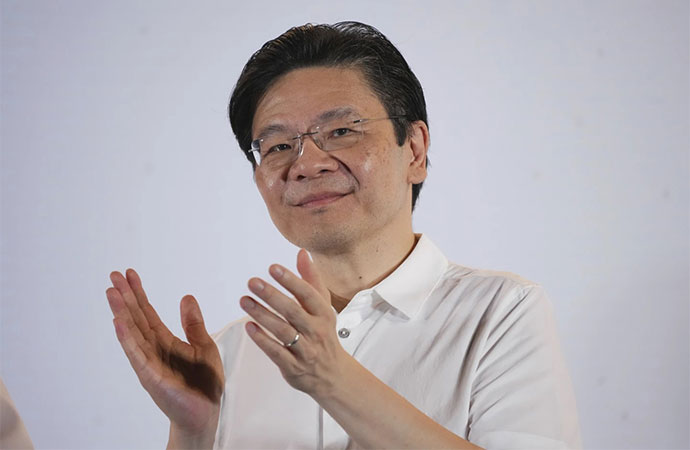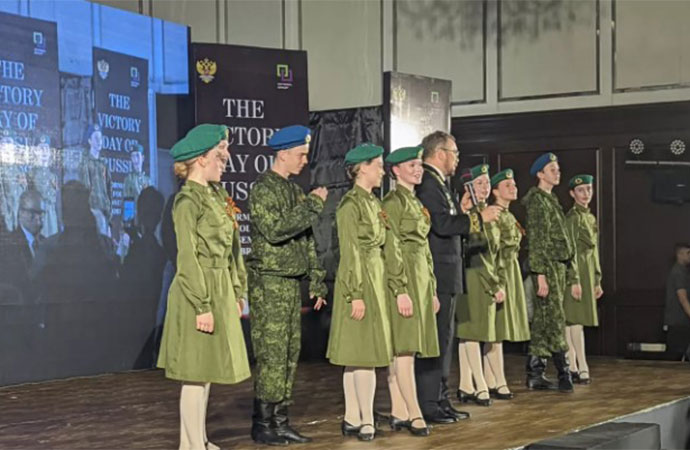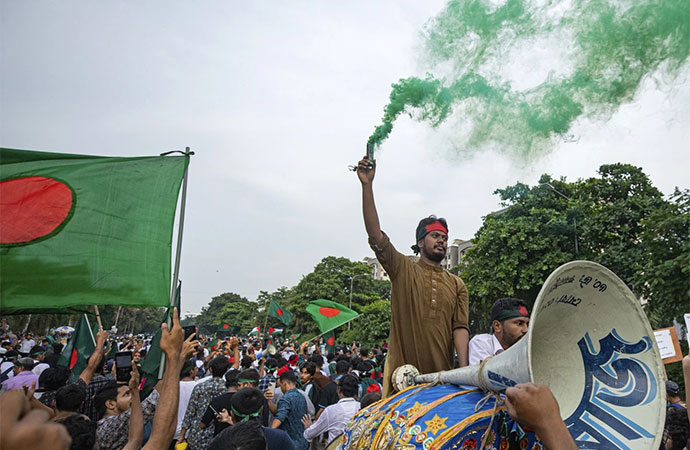Column

Prime Minister Lawrence Wong’s, from the People’s Action Party (PAP), thanks his supporters and voters at an assembly area for People's Action Party supporters, on the day of the general election in Singapore, Saturday, May 3,2025. Photo: AP/UNB
Singapore held its general election earlier this month. The ruling People's Action Party (PAP), which was formed in 1954 and has governed the city-state uninterruptedly since 1959 (from even before Singapore's independence in 1965) was returned to power with a landslide margin of almost 66 per cent of the vote. That result gives Prime Minister Lawrence Wong, who rose to the premiership recently, the mandate that he sought from Singaporeans in his first electoral contest as the leader of the government and the party. The PAP won 87 of the elected seats and the opposition Workers' Party the remaining 10, wiping out all the smaller opposition parties from any presence in the next Parliament. Mexico's Institutional Revolutionary Party holds the record as the world's longest serving party in power: 71 uninterrupted years. The PAP has only five years to go to match that record.
This is not a bad thing for a city-state whose independence was dismissed as a temporary aberration in the political and economic affairs of the world. Singapore has survived to tell a different story. And it has survived because its politics has shaped its economics in a way that has produced globally-recognised success.
How has the Singapore polity achieved this elusive milestone? Let me offer my two cents here. There is an adage which says that people get the government they deserve. Yes, but I believe that the opposite, too, is true: Governments get the people they deserve. Let me explain. Citizens are diverse by definition: They are diversified by class, gender, language, religion and the personal circumstances that flow from these differences. Many of these differences overlap, but they remain differences nevertheless.
Elections amplify those differences: That is why elections are held at all, so as to articulate what separates people within the nation. Following elections, however, a party comes to rule, whether all by itself or in coalition with like-minded parties. The ruling party/parties have two ways in which to go about their jobs. They can exacerbate national differences to retain their vote shares, even to the extent of fomenting civil war ultimately, or they can consolidate their ideational influence on voters by creating new sources of understanding, affiliation and unity in the populace.
The secret to the PAP's longevity is that it remains the political gold standard of the founding principles that constitute, to this day, what Singapore is: a multiracial, multireligious, secular nation-state. For anyone to go against this principle is to go against the Singapore ethic itself. Opposition parties, too, abide by this national formula, which is why any party or individual who wishes to argue for a Chinese Singapore or a Muslim Singapore would be laughed out of the popular court. Chinese form the overwhelming majority of Singaporeans, and Muslims form the overwhelming majority in neighbouring Malaysia and Indonesia. But Singaporeans do not live elsewhere. They live in their own country. Singapore is Singapore.
In a nutshell, ethnic identity politics has not been allowed to gain a political foothold in Singapore. People are allowed to be themselves, so long as they do not try and prevent others from being themselves. The state does not stop anyone from being ethnically Chinese or Malay or Indian or Eurasian: It does not stop anyone from following the religious precepts of Taoism, Buddhism, Islam, Christianity or Hinduism. Atheists and agnostics are not hunted down, killed or exiled. But all Singaporeans, whatever their ethnic origins or religious beliefs, must abide by the secular laws of the land. The authorities are watchful and come down hard on any group that tries to transgress inro the common national space. The state is an impartial interlocutor among the different races and religions, but it is not neutral when it comes to upholding the fundamentals of Singapore.
This is the Singapore inscribed in the PAP's genes, a nation whose political lineage stretches from Lee Kuan Yew, its political founder, to Lawrence Wong, the latest inheritor of the Singapore Legacy.
But why do Singaporeans stay true to the national dream? It is because the PAP represents not just ideas but deeds. It practices what it preaches in ways that matter to all citizens. Its non-negotiable emphasis on personal integrity, bureaucratic efficiency and pragmatic results is not just an arrangement of leasing words. It has been practised since 1959. There have been infringements, of course, but they have been punished on being caught. It is not for nothing that ordinary citizens fear the law in Singapore: Ministers and civil servants do so as well. That is why the law works, and that is why Singapore works. It is known for the reliability of its laws around the world. The accolade was not done in a day.
All this said, there are challenges ahead. The global economy could go into a tailspin because of the attritional tariff war underway between the United States and China. Armed conflict could occur between the two global powers over Taiwan or something else. Singapore is extremely dependent on the global economy. As a small state, it does not wish to choose sides between two global hegemons. Any collapse of the global infrastructure of peace would invite religious terrorism and extremism to try and erect an alternative edifice. Singapore stands exposed. That is the bad news. But the good news is that it is prepared for the future, as much as any other nation is, on the basis of its substantial financial reserves, the strength of its armed forces, and the resilience of a people who believe in Singapore as a nation.
The writer is Principal Research Fellow of the Cosmos Foundation. He may be reached at epaaropaar@gmail.com

























Leave a Comment
Recent Posts
The forensic clean up of the f ...
Much of the coverage centring the surge in Non Performing Loans (NPLs) ...
Hong Kong’s deadliest fire in ...
Hong Kong’s deadliest fire in decades left at least 44 people de ...
False document submission hurts genuine students’ ch ..
The Missing Ingredients for Peace in Palestine
Songs of Hyacinth Boats & Hands: Reading Conversatio ..
Executive Editor Julie Pace on why AP is standing fo ..